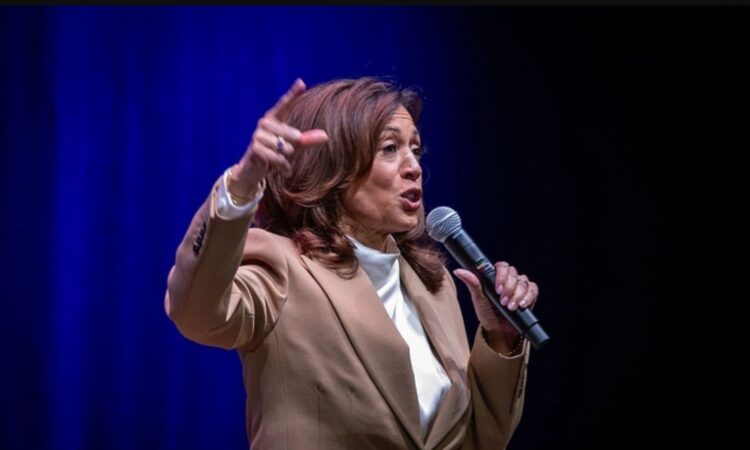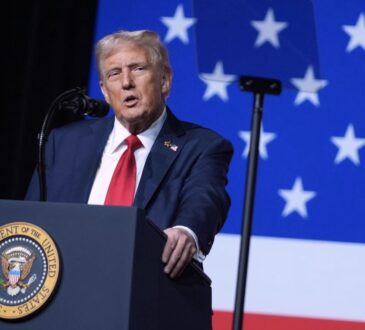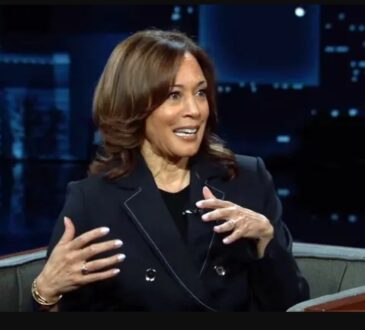
Kamala Harris is out on the road promoting her new book, visiting universities and bookstores around the country. What started as a fairly ordinary book tour has turned into something much more dramatic.
During one of her recent events, a protester shouted at her in anger, calling her a “right-wing war criminal.” The comment stopped Harris in her tracks. She looked visibly upset and tried to respond before moving on, but the moment quickly spread across social media and news sites.
The heckler turned out to be a member of a group called Climate Defiance, an activist organization known for interrupting political events to demand stronger action on environmental issues.
The protester accused Harris of betraying the climate movement and the younger generation. She yelled things like, “You sold out the youth,” “You sold out the climate,” and “Shame on you!” The crowd was stunned, and security eventually stepped in, but the words hung in the air.
For someone like Harris, who has built her image on progressive values, being called a “right-wing” anything is probably one of the most unexpected insults imaginable.
This moment highlighted just how divided American politics and especially the Democratic Party has become. The protester’s comments weren’t coming from the political right, but from the far left.
That makes it even more striking. In the past, Democrats tended to close ranks when criticized by Republicans. Now, increasingly, the tension is coming from within. There’s a growing frustration among young and progressive voters who believe leaders like Harris haven’t done enough to take bold action on issues like climate change, economic inequality, and student debt. To them, speeches and promises aren’t enough; they want results.
Many conservatives and commentators online couldn’t help but notice the irony of the situation. They pointed out that Harris, one of the more liberal figures in mainstream politics, is now being attacked for supposedly being too conservative.
Some used the moment to argue that the Democratic Party has drifted so far left that even its own leaders are being accused of not being “pure” enough. Others said it was another example of how political groups often turn on themselves when frustration builds and progress feels slow.
To some, Harris’s anger and reaction made her seem defensive, while to others, it showed that she’s only human someone who, like anyone else, has limits to what she can tolerate. She’s used to tough questions and criticism, but this was different. Being accused of betraying her own principles appeared to genuinely strike a nerve.
Meanwhile, her book tour continues to draw attention, both for what she’s saying and for the reactions she’s getting. She’s been traveling from city to city, speaking to students, academics, and supporters about her experiences in politics and what she believes the country needs to move forward. But the heckler’s outburst is now part of the conversation everywhere she goes. Instead of talking only about her book, people are debating what the moment means not just for her, but for the state of politics in general.
The scene also says something larger about today’s political climate. Public figures are under constant scrutiny, and social media amplifies every emotional moment. A single clip can reach millions within hours, sparking outrage or laughter depending on who’s watching. What might have once been a small disruption at a book signing is now a viral talking point that shapes how people see Harris and her campaign-style events.
Beneath all of this is a deeper question: how do leaders connect with an increasingly frustrated and divided public? Harris represents the establishment side of the Democratic Party experienced, cautious, and measured. But many younger and more progressive voters want urgency. They see issues like climate change as existential threats that demand radical action, not slow negotiations or compromises. When those expectations collide, emotions flare.
In the end, the confrontation on her book tour was just one moment, but it captured the tension running through American politics right now. Kamala Harris, like many politicians of her generation, is caught between competing demands from moderates who want stability and from activists who want transformation.
Her reaction to being called a “right-wing war criminal” wasn’t just about one insult. It was about the pressure she faces from every direction, the impossible task of satisfying everyone, and the growing impatience of a country that feels stuck and divided.
Even though Harris moved past the incident and kept going with her event, the moment revealed something real about the current political mood: the anger, the exhaustion, and the way frustration turns inward when people stop believing their leaders are listening.
Whether this episode fades away or becomes a lasting symbol of that divide will depend on what happens next both in her book tour and in the coming election season.




